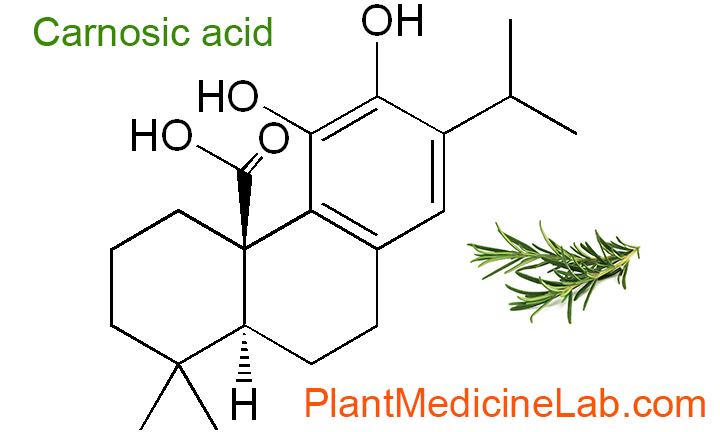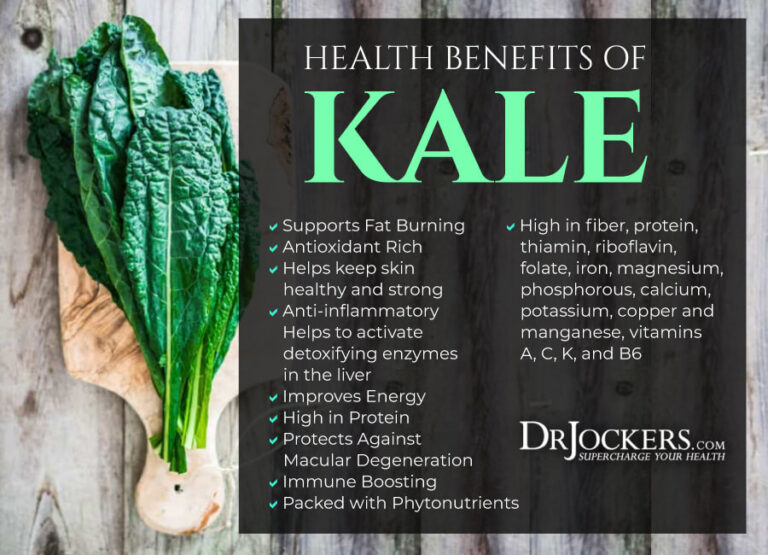Heart Health & Beyond: How Eggplant Can Lower Cholesterol and Blood Pressure – A Culinary Journey to Wellness
In the grand tapestry of human existence, few narratives are as universally compelling as the pursuit of health and longevity. At the heart of this quest lies, quite literally, the human heart – a tireless organ whose rhythmic beat is the very drum of life. Yet, for millions worldwide, this vital rhythm is threatened by silent adversaries: elevated cholesterol and high blood pressure. These conditions, often asymptomatic until they manifest as debilitating events, represent a modern epidemic, casting a long shadow over lives and healthcare systems alike.
Imagine a world where the antidote to these pervasive threats isn’t solely found in pharmaceutical labs, but also in the rich soil of our gardens, in the vibrant hues of natural produce. This isn’t a utopian fantasy, but a story unfolding right before our eyes, with a humble, often overlooked vegetable emerging as a quiet hero: the eggplant. More than just a culinary chameleon, capable of transforming into an array of delectable dishes, eggplant harbors a potent arsenal of compounds that whisper promises of a healthier heart. This is the story of how Solanum melongena, the unassuming eggplant, can become a cornerstone in your journey towards optimal cardiovascular wellness, a journey that extends far beyond merely lowering numbers on a blood test, embracing a holistic path to vitality.
The Silent Scourge: Understanding Cholesterol and Blood Pressure
Before we delve into the eggplant’s remarkable capabilities, it’s crucial to understand the landscape of the challenge. Cardiovascular disease remains the leading cause of death globally, and its primary drivers are well-documented: dyslipidemia (imbalanced cholesterol levels) and hypertension (high blood pressure).
Cholesterol, often demonized, is in fact a vital fatty substance essential for building healthy cells, producing hormones, and aiding digestion. The problem arises when its delicate balance is disrupted. We speak of two main types:
- Low-Density Lipoprotein (LDL) cholesterol, often dubbed "bad" cholesterol, contributes to fatty buildups in arteries (atherosclerosis), narrowing them and increasing the risk of heart attacks and strokes. Oxidized LDL is particularly insidious, triggering inflammation and plaque formation.
- High-Density Lipoprotein (HDL) cholesterol, the "good" cholesterol, acts as a scavenger, carrying excess cholesterol from the arteries back to the liver for removal, thus helping to prevent plaque buildup.
Blood Pressure is the force of blood pushing against the walls of your arteries as your heart pumps. It’s measured in two numbers:
- Systolic pressure (the top number) indicates the pressure when your heart beats and pumps blood.
- Diastolic pressure (the bottom number) indicates the pressure when your heart rests between beats.
Chronically elevated blood pressure forces the heart to work harder, stiffens arteries, and can damage blood vessels throughout the body, leading to heart disease, stroke, kidney failure, and other severe health problems.
The interconnectedness of these conditions is profound. High cholesterol contributes to atherosclerosis, which in turn can lead to increased blood pressure as arteries become less elastic. The conventional medical approach often involves statins for cholesterol and a range of medications for hypertension. While invaluable, these pharmacological interventions often come with side effects and rarely address the root lifestyle factors. This is where the story of dietary intervention, particularly with foods like eggplant, begins to shine, offering a complementary and often preventative pathway to wellness.
The Protagonist Emerges: A Deep Dive into Eggplant’s Origins and Varieties
Our hero, the eggplant, boasts a rich and fascinating history, a global journey that speaks to its adaptability and enduring appeal. Known scientifically as Solanum melongena, it belongs to the nightshade family (Solanaceae), alongside tomatoes, potatoes, and bell peppers.
The eggplant’s tale begins over 2,000 years ago in the fertile lands of India, where it was first domesticated. From there, it embarked on a remarkable odyssey, traveling along ancient trade routes. Arab traders introduced it to Africa, and by the 7th century, it had reached the Middle East. Its journey continued eastward to China, where ancient texts describe its cultivation and culinary uses. It wasn’t until the Moorish conquests that eggplant made its way to Europe, primarily Spain, and slowly gained acceptance across the continent, though initially viewed with suspicion due to its nightshade lineage and sometimes bitter taste. Early European varieties were often small, white, and egg-shaped, hence the English name "eggplant."
Today, the eggplant is a global citizen, celebrated in kitchens from Istanbul to Kyoto, from Palermo to Philadelphia. Its versatility is matched only by its stunning diversity in appearance:
- Globe Eggplant: The most common variety in Western markets, large, pear-shaped, with glossy, dark purple skin. Its creamy flesh makes it ideal for roasting, grilling, and stuffing.
- Italian Eggplant: Similar to globe but smaller and often a deeper, almost black-purple. Excellent for dishes like eggplant Parmesan.
- Japanese and Chinese Eggplants: Long, slender, and often a lighter purple or even lavender hue. Their thinner skin and fewer seeds mean they are less bitter and cook more quickly, perfect for stir-fries and quick sautés.
- Thai Eggplant: Small, round, and often green or white, resembling tiny apples. They have a slightly firmer texture and are commonly used in curries.
- White Eggplant: True to its name, these are white and can vary in shape from small and egg-like to long and slender. They tend to have a milder flavor.
- Fairy Tale Eggplant: A miniature, often striped purple and white variety, perfect for individual servings or grilling whole.
This botanical and historical journey underscores not just the eggplant’s endurance, but its deep integration into diverse culinary traditions, setting the stage for its nutritional prowess to shine.
The Heart of the Matter: Eggplant’s Nutritional Arsenal Against Cholesterol and Blood Pressure
Now, let’s peel back the layers – quite literally – and explore the incredible nutritional profile that transforms the humble eggplant into a powerhouse for heart health. Its benefits are not attributed to a single "magic bullet" compound, but rather to a synergistic symphony of vitamins, minerals, fiber, and potent antioxidants.
1. The Fiber Factor: Binding Cholesterol and Regulating Pressure
Eggplant is a rich source of dietary fiber, a non-digestible carbohydrate crucial for digestive and cardiovascular health. A medium-sized eggplant can provide a significant portion of your daily recommended fiber intake.
- Soluble Fiber and Cholesterol: This type of fiber acts like a sponge in the digestive tract. It binds with bile acids, which are compounds made from cholesterol in the liver and are necessary for fat digestion. When soluble fiber binds to these bile acids, they are excreted from the body instead of being reabsorbed. To replenish the lost bile acids, the liver must draw more cholesterol from the bloodstream, thereby reducing circulating LDL cholesterol levels. This mechanism is a cornerstone of many cholesterol-lowering diets.
- Insoluble Fiber and Digestive Health: While not directly involved in cholesterol binding, insoluble fiber adds bulk to stool, promoting regularity and preventing constipation. A healthy gut microbiome, fostered by adequate fiber intake, has emerging links to overall cardiovascular health, influencing inflammation and metabolic processes.
- Fiber and Blood Pressure: High-fiber diets are consistently associated with lower blood pressure. While the exact mechanisms are complex, fiber contributes to weight management (obesity is a major risk factor for hypertension), improves insulin sensitivity, and can positively influence gut microbiota, which in turn affects blood vessel function and inflammation.
2. Potassium: The Blood Pressure Regulator
Eggplant is a good source of potassium, a vital electrolyte that plays a critical role in maintaining fluid balance and regulating blood pressure.
- Counteracting Sodium: In modern diets, excessive sodium intake is rampant, leading to fluid retention and increased blood pressure. Potassium works in opposition to sodium, helping to excrete excess sodium through urine. This delicate balance is essential for maintaining healthy blood volume and reducing the strain on arterial walls.
- Vascular Relaxation: Potassium also helps relax the walls of blood vessels, which in turn lowers blood pressure. This vasodilation effect is crucial for smooth blood flow and reducing peripheral resistance. Studies consistently show that diets rich in potassium-containing foods like eggplant are associated with significantly lower risks of hypertension and stroke.
3. Antioxidants: Guardians of Vascular Health
The vibrant purple skin of many eggplant varieties is a visual cue to their potent antioxidant content. These compounds are crucial for combating oxidative stress, a process where unstable molecules called free radicals damage cells, including those lining blood vessels, contributing to atherosclerosis and inflammation.
- Nasunin: This anthocyanin, a type of flavonoid, is largely responsible for eggplant’s distinctive purple hue and is primarily found in its skin. Nasunin is a powerful antioxidant with a unique ability to chelate (bind with) iron. While iron is essential, excess free iron can generate free radicals and promote oxidative stress. By binding to iron, nasunin helps prevent this damaging process, particularly in brain cells and cell membranes. For heart health, nasunin’s antioxidant properties protect LDL cholesterol from oxidation, a critical step in the formation of arterial plaque. It also safeguards the integrity of blood vessel walls, promoting elasticity and reducing inflammation.
- Chlorogenic Acid: This is another major phenolic compound found in eggplant, present in both the skin and flesh. Chlorogenic acid is renowned for its broad spectrum of health benefits, including its powerful antioxidant and anti-inflammatory properties.
- Blood Pressure Reduction: Research suggests that chlorogenic acid can contribute to lowering blood pressure by potentially acting as a natural angiotensin-converting enzyme (ACE) inhibitor. ACE is an enzyme that produces angiotensin II, a potent vasoconstrictor (a substance that narrows blood vessels). By inhibiting ACE, chlorogenic acid helps relax blood vessels, thus reducing blood pressure. This mechanism mirrors that of some common pharmaceutical blood pressure medications.
- Cholesterol Metabolism: Chlorogenic acid may also influence cholesterol metabolism, though more research is needed to fully elucidate its mechanisms. Its antioxidant activity also helps protect LDL from oxidation.
- Other Flavonoids: Eggplant contains other beneficial flavonoids that contribute to its overall antioxidant capacity, collectively working to protect cardiovascular cells from damage and reduce systemic inflammation.
4. Saponins: Emerging Players in Cholesterol Management
While not as heavily researched in eggplant as in some other plant foods, some studies suggest the presence of saponins in eggplant. Saponins are natural compounds known for their cholesterol-lowering effects. They are thought to work by binding with bile acids and cholesterol in the digestive tract, preventing their reabsorption and promoting their excretion, similar to soluble fiber. This area warrants further investigation specific to eggplant, but it represents another potential pathway for its heart-healthy benefits.
The Scientific Narrative: What Research Tells Us
While eggplant has been a staple in traditional medicine and cuisine for centuries, modern science is increasingly validating its health claims. Most research on eggplant’s direct impact on human heart health has been promising but often involves animal models or in vitro (test tube) studies.
- Animal Studies: Numerous animal studies have demonstrated eggplant’s potential. For instance, studies on rabbits fed high-cholesterol diets showed that eggplant extract significantly reduced LDL cholesterol and triglyceride levels, while also improving arterial health and reducing atherosclerotic plaque formation. Similar findings have been observed in rats, where eggplant consumption led to lower blood pressure and improved lipid profiles. These studies often highlight the role of nasunin and chlorogenic acid in these beneficial effects.
- Human Studies (Limited but Promising): Direct, large-scale human clinical trials specifically on eggplant and heart health are still somewhat limited compared to those for other common vegetables. However, population studies consistently link higher consumption of vegetables, including eggplant, to better cardiovascular outcomes. Small intervention studies have shown that incorporating eggplant into a diet can lead to modest but significant reductions in blood pressure and improvements in cholesterol markers in some individuals, particularly when part of an overall healthy eating pattern. The synergistic effect of eggplant’s various compounds within a balanced diet is likely key.
It’s important to frame these findings responsibly: while the evidence is compelling, eggplant is a food, not a drug. Its benefits are best realized as part of a holistic approach to health, not as a standalone "cure."
Beyond the Heart: Expanding Eggplant’s Health Story
Eggplant’s contributions extend beyond cholesterol and blood pressure, weaving a broader narrative of overall wellness.
- Weight Management: With its high fiber content and low calorie count (approximately 20-35 calories per 100 grams, depending on preparation), eggplant is an excellent food for weight management. Fiber promotes satiety, helping you feel fuller for longer and reducing overall calorie intake, a critical factor in preventing obesity-related heart disease.
- Blood Sugar Control: The fiber in eggplant also helps stabilize blood sugar levels by slowing down the absorption of glucose. This makes it a beneficial food for individuals with diabetes or those at risk, as uncontrolled blood sugar is another major contributor to cardiovascular damage. Its low glycemic index further supports this benefit.
- Brain Health: Nasunin, the antioxidant powerhouse in eggplant skin, has neuroprotective properties. Its ability to chelate excess iron is particularly important for brain health, as iron overload can contribute to oxidative stress and neuronal damage. By removing this excess iron, nasunin may help protect brain cell membranes from free radical damage, potentially supporting cognitive function.
- Anti-Inflammatory Effects: The rich array of antioxidants and phenolic compounds in eggplant possess significant anti-inflammatory properties. Chronic inflammation is a key driver in the development and progression of numerous diseases, including atherosclerosis, diabetes, and certain cancers. By dampening inflammatory pathways, eggplant contributes to systemic health and reduces the burden on the cardiovascular system.
- Cancer Prevention: While not a direct cancer cure, the strong antioxidant and anti-inflammatory profile of eggplant suggests a role in cancer prevention. Antioxidants help protect cells from DNA damage that can lead to cancer, and anti-inflammatory compounds can inhibit tumor growth and spread.
- Gut Health: The fiber in eggplant acts as a prebiotic, feeding beneficial gut bacteria. A healthy and diverse gut microbiome is increasingly recognized as fundamental to overall health, influencing immunity, mood, metabolism, and even cardiovascular risk factors.
Integrating Eggplant into Your Culinary Story: Practical Advice
Embracing eggplant for its health benefits doesn’t require a radical dietary overhaul; it’s about mindful integration. Here’s how to weave this versatile vegetable into your daily life:
Buying and Storing:
- Choose Wisely: Look for eggplants that are firm, glossy, and heavy for their size. The skin should be smooth and free of blemishes or soft spots. The stem and cap should be bright green.
- Storage: Store whole eggplants in a cool, dark place or in the refrigerator’s crisper drawer for up to a week. Avoid cutting it until you’re ready to use it, as the flesh oxidizes quickly.
Preparation:
- To Salt or Not to Salt? Traditional recipes often call for salting eggplant slices before cooking to draw out bitterness and excess moisture. Modern eggplant varieties are often less bitter, so this step isn’t always necessary, especially for grilling or roasting. However, for dishes where you want to minimize oil absorption (e.g., frying), salting can still be beneficial. After salting, rinse thoroughly and pat dry.
- Cooking Methods: Eggplant’s dense flesh makes it incredibly adaptable.
- Roasting: Toss cubes or slices with olive oil, herbs, and garlic. Roast until tender and slightly caramelized. This method brings out its sweetness.
- Grilling: Slice into rounds or planks, brush with olive oil, and grill until tender with appealing char marks.
- Baking: Use it in casseroles, lasagna (as a noodle substitute!), or baked moussaka.
- Stir-frying: Japanese or Chinese eggplants are excellent for quick stir-fries due to their thinner skin and faster cooking time.
- Sautéing: Sauté cubes or slices for side dishes or to add to pasta sauces.
- Steaming: A healthier option that retains nutrients, often used in Asian cuisine.
Recipe Inspiration:
- Baba Ghanoush: A classic Middle Eastern dip made from roasted eggplant, tahini, lemon juice, garlic, and olive oil. Perfect with whole-wheat pita or vegetable sticks.
- Eggplant Parmesan (Healthier Version): Instead of frying, bake the eggplant slices until tender, then layer with whole-wheat breadcrumbs, low-fat mozzarella, and homemade marinara sauce.
- Moussaka: A hearty Greek casserole layering eggplant, seasoned ground lean meat (or lentils for a vegetarian version), and a creamy béchamel topping.
- Caponata: A Sicilian sweet and sour eggplant relish with tomatoes, capers, olives, and celery. Delicious as an appetizer or side dish.
- Grilled Eggplant and Halloumi Salad: Marinate grilled eggplant slices with herbs, then combine with grilled halloumi cheese, cherry tomatoes, and a light vinaigrette.
- Eggplant Curry: Incorporate chunks of eggplant into your favorite Indian or Thai curry, allowing it to absorb the rich flavors of the spices.
- Eggplant "Meatballs": Blend roasted eggplant with breadcrumbs, herbs, and spices to create vegetarian meatballs that are surprisingly satisfying.
A Note on Nightshades:
Some individuals report sensitivity to nightshade vegetables. If you experience adverse reactions (e.g., joint pain, digestive issues) after consuming eggplant, consult a healthcare professional. However, for the vast majority, eggplant is a safe and beneficial food.
The Unfinished Story: Challenges and Future Directions
While the narrative of eggplant and heart health is compelling, it’s an evolving story. There are still chapters to be written and further research to be conducted.
- Large-Scale Human Trials: The most significant need is for more extensive, long-term human clinical trials to definitively quantify the impact of regular eggplant consumption on cholesterol and blood pressure in diverse populations. This would help establish optimal intake levels and identify specific dietary recommendations.
- Bioavailability and Preparation: Research could further explore how different cooking methods affect the bioavailability of eggplant’s beneficial compounds. For instance, does roasting preserve antioxidants better than boiling? Does salting impact nutrient content?
- Synergistic Effects: Understanding how eggplant interacts with other heart-healthy foods (e.g., olive oil, garlic, leafy greens) in a complete dietary pattern is crucial. The Mediterranean diet, rich in many of these components, is already known for its cardiovascular benefits, and eggplant is a core part of it.
- Genetic Variation: Could there be genetic variations among individuals that influence how they respond to eggplant’s compounds? Personalized nutrition is an emerging field that could shed light on this.
These areas represent exciting frontiers in nutritional science, promising to deepen our understanding of how simple, natural foods can profoundly influence our health trajectory.
The Epilogue: A Promise of Wellness in Every Bite
As our story draws to a close, the unassuming eggplant emerges not just as a versatile vegetable but as a symbol of nature’s profound capacity to nurture and heal. Its journey from ancient India to modern kitchens is a testament to its enduring value, and its rich nutritional profile, particularly its fiber, potassium, and powerful antioxidants like nasunin and chlorogenic acid, paints a clear picture of its role in safeguarding our most vital organ.
In a world grappling with the escalating burden of heart disease, the narrative of dietary intervention offers a beacon of hope. Eggplant, with its demonstrated potential to lower harmful cholesterol, regulate blood pressure, and provide a cascade of broader health benefits, is more than just a food; it is an invitation. An invitation to embrace a culinary adventure, to savor flavors, and to make conscious choices that resonate with the rhythm of a healthy heart.
Let the story of eggplant inspire you to transform your plate, one delicious, purple-hued bite at a time. It’s a journey not just to lower numbers on a medical chart, but to cultivate a vibrant, resilient life – a life lived with heart, health, and beyond. The power to write this chapter of wellness lies in your hands, in your kitchen, and in the simple, profound wisdom of nature’s bounty.





